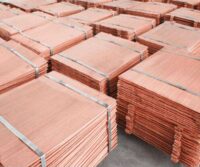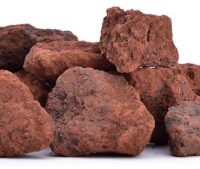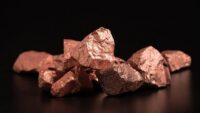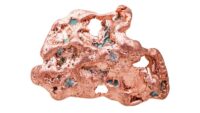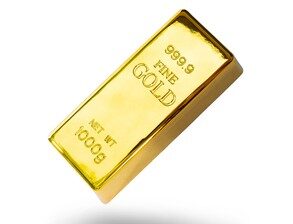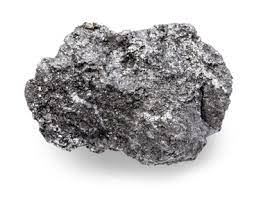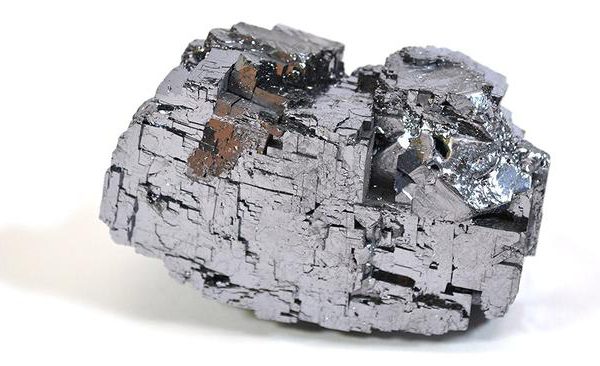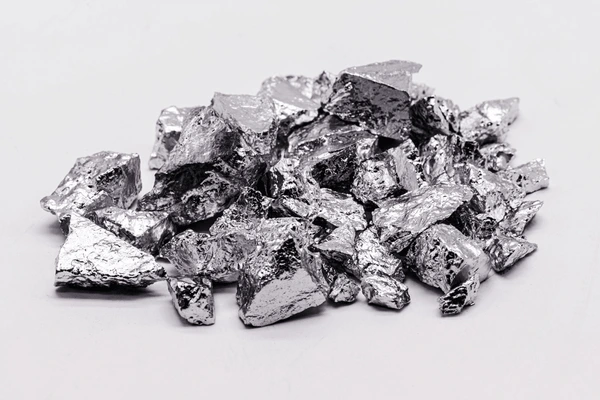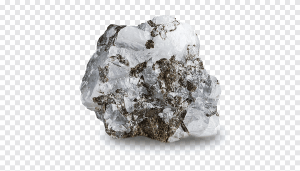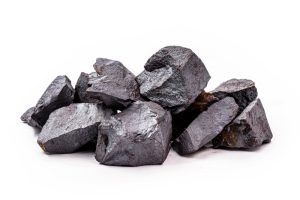Forms: Cathodes, Concentrate
Origins: DRC, Zambia, Zimbabwe, Tanzania
Delivery Modes: ex-Warehouse (Private/Bonded Warehouse), FOB, CIF
Payment Modes: LC, TT
Quantities: 2000-5000 MT
Copper: The Conductor of Our Electrified World
Copper, with its warm reddish glow and exceptional electrical conductivity, plays a vital role in our modern lives. From powering our homes to wiring electronics and propelling electric vehicles, this versatile metal forms the backbone of our interconnected world. Let’s delve into the intricacies of copper, exploring its sources, applications, and key considerations for international traders and buyers.
Description:
Copper exists primarily in copper sulfide ores, with chalcopyrite (CuFeS2) being the most common. Copper content, ranging from 0.5% to 10%, determines the ore’s grade and value. Other factors impacting usability and processing costs include impurities like iron, silica, and molybdenum.
Key Source Countries:
- Chile: The world’s leading producer, boasting vast copper reserves and established mine operations. Major players include Codelco, the world’s largest copper producer, and BHP Billiton.
- Peru: Second largest producer, contributing about 10% of global output
- China: While possessing significant domestic reserves, China’s growing demand necessitates substantial imports, shaping the global market.
- Other notable producers: The Democratic Republic of Congo, the United States, Zambia, Australia, and Mexico contribute to the remaining global production.
World Output Volumes:
Global copper production reached approximately 20 million tonnes in 2023, with Chile maintaining its dominant position. However, fluctuations in demand and supply dynamics, particularly from China, can cause price volatility.
Major Producers and Market Share:
- Codelco: The world’s largest producer, controlling around 20% of the global market. Operates extensive Chilean mines and boasts sophisticated production processes.
- Freeport-McMoRan: Leading producer in the United States and Indonesia, holding approximately 12% of the global market share.
- BP Billiton: Operations in Chile, Peru, and Australia contribute roughly 8% of global output.
- Glencore: Chilean and Congolese mines account for around 7% of the global market.
- Other major producers: Anglo American, Southern Copper Corporation, MMG, First Quantum Minerals, and numerous smaller players contribute to the remaining market share.
Forms of Trade:
Copper is primarily traded in these forms:
- Blister copper: Impure form extracted from ore through smelting, containing around 98% copper. Further refined for various applications.
- Cathode copper: High-purity copper (over 99.9% obtained through electrolytic refining. Traded on global exchanges and used in a wide range of sectors.
- Concentrate
- Ore
Price Trends (Past 5 Years):
Copper prices have experienced significant fluctuations over the past five years:
- 2019: Prices hovered around $6,500 per tonne due to balanced supply and demand.
- 2020: Pandemic disruptions caused a temporary drop to $4,500 per tonne before a rebound.
- 2021: Surging demand for electric vehicles and infrastructure projects pushed prices to a record high exceeding $10,000
per tonne. - 2022: Prices corrected downwards to around $8,000 per tonne due to concerns about slowing global growth and rising interest rates.
-
2023: Prices maintained volatility, ranging between $7,000 and $9,000 per tonne, influenced by geopolitical tensions, inflation, and the pace of the green energy transition.
Major Importing Countries:
- China: The world’s largest importer, consuming over 50% of global copper, primarily for its rapidly growing electronics and electric vehicle industries.
- India: Second-largest importer, driven by infrastructure development and rising domestic demand.
- United States: A major consumer of copper for infrastructure, construction, and electronics.
- European Union: Collectively a significant importer, reliant on copper for various industrial applications.
- Japan: A major consumer of copper for electronics and electrical equipment production.
Major Exporting Countries:
- Chile: The largest exporter, accounting for over 25% of global copper trade. Extensive reserves and efficient export infrastructure contribute to its leading position.
- Peru: Second-largest exporter, controlling around 15% of global trade. Major mines like Cerro Verde and Las Bambas contribute significantly.
- Democratic Republic of Congo: Holds approximately 10% of the global export market share. However, ongoing political instability and social concerns impact its export stability.
- Australia: Australian mines contribute around 8% of global copper exports.
- Other notable exporters: Zambia, Kazakhstan, Mexico, and the United States contribute to the remaining export volume.
Considerations for International Traders and Buyers:
Copper’s vital role in the global economy and its volatile price movements make it a complex commodity for international traders and buyers. Here are some key factors to consider:
Supply chain disruptions: Geopolitical tensions, infrastructure limitations, and extreme weather events can affect copper
production and transportation, impacting availability and prices.
Grade variations: Understanding the copper content, impurities, and specific processing needs of different ores is crucial for optimizing downstream processing costs and meeting end-product
specifications.
Sustainability concerns: Growing environmental regulations and ethical sourcing requirements influence buyer preferences and production practices. Responsible sourcing certifications and
transparent supply chains are increasingly important.
Demand fluctuations: Fluctuations in demand, particularly from major importers like China and India, can significantly impact copper prices. Staying informed about economic trends, infrastructure projects, and the green energy transition is crucial for
informed decision-making.
Market structure: Copper is traded on global exchanges like the London Metal Exchange (LME) and the Shanghai Futures Exchange (SHFE). Understanding the dynamics of these markets, including contract specifications, hedging strategies, and margin requirements, is necessary for effective trading.
Price volatility: Copper prices can be highly volatile due to the factors mentioned above. Utilizing risk management strategies like stop-loss orders and hedging can help mitigate potential losses.
Logistics and transportation: Efficient and reliable transportation from mine to consumer is crucial for cost-effectiveness. Understanding shipping routes, costs, and potential delays is
important.
Financing options: Various financing options are available for international copper trade, including trade finance instruments and commodity financing solutions. Evaluating options based on risk tolerance and cost implications is crucial.


